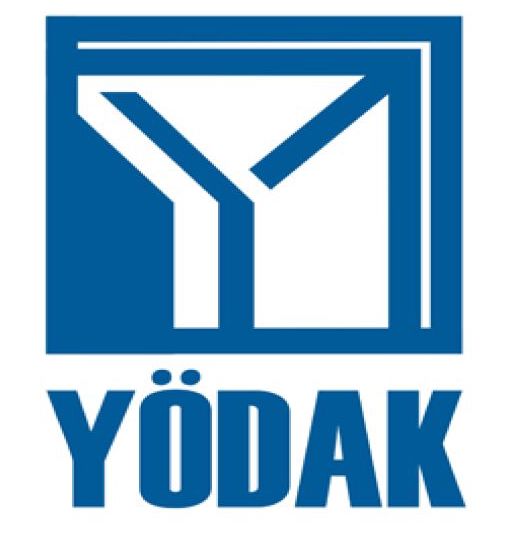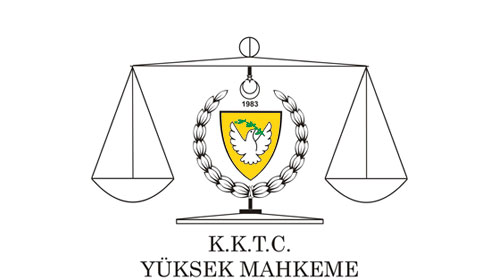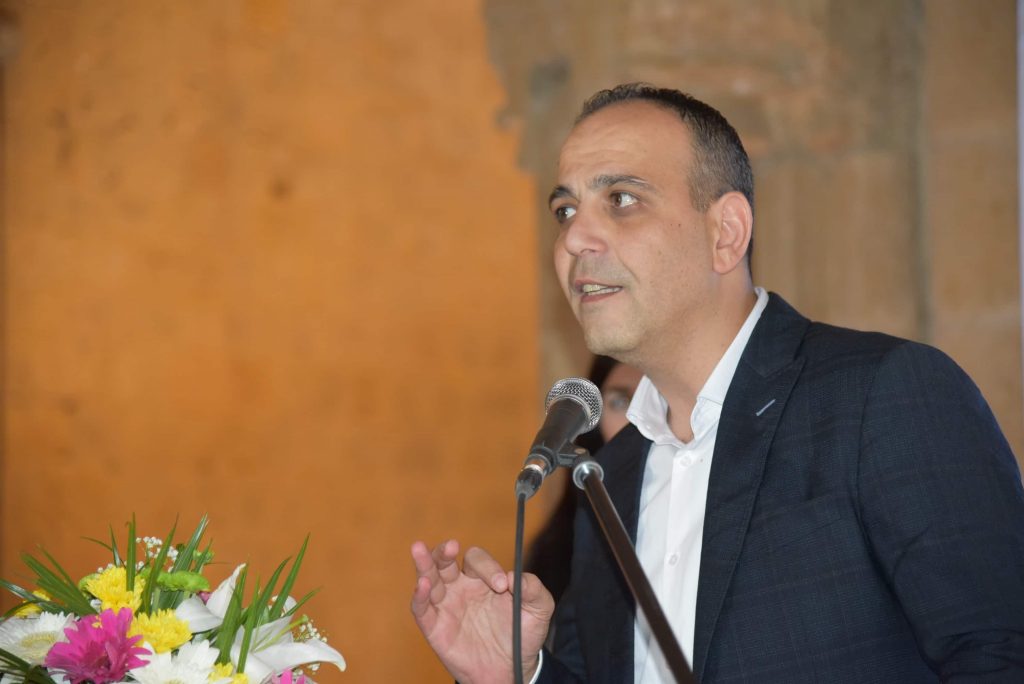The United States State Department has released their 2021 report on human trafficking in North Cyprus. Similar to last year’s report, the verdict is pretty much the same: “The TRNC does not fully meet the minimum standards for the elimination of trafficking and is not making significant efforts to do so…”
I am an MBA student in the Turkish Republic of North Cyprus (TRNC) and here are my thoughts on how I think human trafficking can be curbed in the TRNC.
In the United States 2020 and 2021 Trafficking in Persons Report on Cyprus, North Cyprus was particularly indicted in the trade of sex trafficking of persons from Nigeria, Belarus, Moldova, Morocco, Russia, and Ukraine, while others came from Armenia, Azerbaijan, Kazakhstan, Kenya, Kyrgyzstan, Paraguay, Tajikistan, Tanzania, Turkmenistan and Uzbekistan.
The State Department’s report states that, “Foreign university students, many of whom were recruited with false promises of scholarships, free housing, and employment, are vulnerable to both sex and labor trafficking.”
Unsurprisingly, these same countries also account for nearly 40% of the international student population and therefore a significant portion of the higher education revenue that accounts for a fifth of North Cyprus’ GDP (gross domestic product).
“Foreign university students, many of whom were recruited with false promises of scholarships, free housing, and employment, are vulnerable to both sex and labor trafficking”
In early 2021, TRNC’s local press reported a fall in enrolment. Of the expected 37,000 students, less than 10,000 actually arrived and remained on the island. Most either returned to their home countries or never arrived at all. Local traders complained in the press how this massive drop has affected their businesses.
Higher education is the TRNC’s second largest business sector, just behind tourism. The two combined contribute to nearly half of the country’s entire income. Given the economic fallout due to the pandemic, it is likely that higher education revenues surpassed tourism both in 2020 and this year, presenting a compelling case for urgent reforms of this crucial sector.
How international students are ripe for exploitation from dubious agents
As things stand, the process is ripe for exploitation from dubious agentsdue to a lack of proper controls. Here are two short extracts from the article I wrote back in November (The dubious role of agents and their enrolment practices for TRNC universities) about this problem:
“Your “agent” paints your head with pictures and stories, maybe even sends you visuals to illustrate life in North Cyprus, and pretty soon you start to fall in love with this paradise island. What you don’t realise is that your “agent” is doing all this – including lying and manipulating – to ensure that you enrol and generate them commission from the university.
“Now, you are hooked on the cool-aid that is the well-seasoned blend of truth and deception from the admission agent. You decide to pay your fees and begin to process your visa and travel documents.
“It is important to note that the TRNC is one of the most affordable tuition regimes for international students globally. Yet even on this, you are not told the full truth. Initially, many foreign students are led to believe by “agents” that their deposit is the full year’s fees, but it is often only a third or half of what they have to pay. In this way, the fees appear even cheaper than they really are.
“Next, your “agent” convinces you to pay for a dormitory. This is not because it is a better option than renting an apartment, but because their commission increases dramatically if you stay in university accommodation.”

An international student arrives far from home to what they expect will be a paradise location to study, only to face a multitude of problems and expenses they were never informed about.
“On top of all of this, you still really have no idea how things work in the TRNC. You don’t know what rights you have as an international student and whether the TRNC constitution offers you any protection. So, you are stuck.
“You cannot afford decent accommodation, you cannot get a job, you cannot afford a flight back home, you cannot afford the rest of your fees, which also means you cannot get your TRNC student resident’s permit. All the money you’ve set aside for your first year is now gone, you can barely survive, and your “agent” is nowhere to be found, probably off to recruit the next batch of unsuspecting students.
“Sadly in North Cyprus, young foreign students have not only had their academic aspirations snuffed out, but they have also fallen into the clutches of those who fully exploit their vulnerabilities, knowing that the local authorities are indifferent to the plight of such people”
A person desperate for money simply to survive is extremely vulnerable to sex and human trafficking. Sadly in North Cyprus, too many young foreign students have not only had their academic aspirations snuffed out, but they have also fallen into the clutches of those who fully exploit their vulnerabilities, knowing that the local authorities are indifferent to the plight of such people.
Along with shedding light on these all too common problems for foreign students in the TRNC, below I have tried to pinpoint appropriate solutions that the Turkish Cypriot government can implement to remedy this unacceptable situation, and manage these issues more effectively. At the very least, there must be a clear commitment to mitigate the factors that drive human and sex trafficking.
-
Information
There is a saying in Nigeria: “The easiest way to remove darkness is to switch on the light”.
Every prospective student searches the internet for information on North Cyprus before making a decision to enrol or not. This is standard practice, but the absence of correct and credible information about North Cyprus creates a loophole that is easily exploited by admission agents and others.
The solution for this is divided into two parts:
(i) Close the information gaps:
Whether its information from the TRNC Interior Ministry and its Department for Immigration, or the Ministry of Foreign Affairs, TRNC higher education board YODAK or the universities, what they publish about schooling in North Cyprus is either out of date, vague, provided only in Turkish, or non-existent.
It is important to note that a significant percentage of international students in the TRNC speak English as a first language, so it is important that information is always presented in English as well.

There needs to be a credible information source, preferably a website endorsed as “official”, from the TRNC Government, that interfaces with the Interior Ministry, and others responsible for overseeing policies affecting foreign students. This should extend to those in need of information about work or student residency visas, as well as fees and other costs that overseas students are likely to face from their universities.
This website should be in at least three languages, English, Turkish and Arabic, and updated at least twice a year, during the admission seasons in February and September.
It should contain clear and comprehensive information on how to arrive in North Cyprus from different countries where students are commonly travelling from, with links to relevant government sites (where applicable) and airlines for transit and travel visa information.
It must be clear on the criteria for resident and student work permits, as well as for certificate recognition.
Issues such as human trafficking must be openly addressed, and guidance on how to avoid along with helplines and emails for those affected or concerned. There should be better social media presence too, especially Twitter, so students can make contact with their questions.
(ii) Mandatory TRNC induction for foreign students:
Every university in North Cyprus should be mandated to provide orientation for their new international students every admission cycle (February and September). This should include question-and-answer sessions with officials from the TRNC Department of Immigration, the police, social services (who are responsible for the TRNC trafficking hotline) and university admissions committee present.
“if a university cannot take the safety and wellbeing of their international students seriously, they should not have any”
The Ministry of Education and YODAK must ensure compliance of this crucial induction. Universities who fail to comply with this should be blacklisted from student recruitment for at least one admission cycle. Repeat offenders should get multiple suspensions and, ultimately have their higher education licences revoked: if a university cannot take the safety and wellbeing of their international students seriously, they should not have any.
(iii) Proof of funds:
In Canada, the United States, Netherlands and so on, international students are required to have a specific amount of funds to demonstrate they can afford to be a student. They must present bank statements showing they have sufficient income to cover all their expenses.
Whatever the agreed minimum threshold, a TRNC university should do its due diligence to ensure the applicant is a genuine student with the means to attend a university abroad before issuing admission letters. The priority should be on checking proof of funds, instead of relying on prospective students paying an initial deposit.
(iv) Let’s talk about human trafficking:
The issue is swept under the carpet in North Cyprus, a social taboo because the issue is awkward to talk about. Locals, it seems, have very little awareness of the extent of the problem and how it manifests itself, or what the signs are if a person is being trafficked.
 There should be a public awareness campaign across the TRNC, in fact across the entire island, so clubs, associations, churches and mosques use their platforms to speak about human trafficking. There should be posters, billboards, and dedicated media programmes in English and Turkish, so there can be a national conversation about human trafficking, and how to stop it.
There should be a public awareness campaign across the TRNC, in fact across the entire island, so clubs, associations, churches and mosques use their platforms to speak about human trafficking. There should be posters, billboards, and dedicated media programmes in English and Turkish, so there can be a national conversation about human trafficking, and how to stop it.
The agencies tasked with tackling the problem need to be adequately resourced. There is no point, for example, having a hotline for trafficking if no one answers the phone!
Police seem unaware that human trafficking is now a crime in the TRNC. Penal Code 154 was amended in 2020, yet there have been no arrests and prosecutions – a point raised by Fezile Osum, the TRNC co-ordinator for the Programme to Combat Human Trafficking, in an interview with Gazedda Kibris in May.
This is about humanity, so it’s vital the Turkish Cypriot authorities and the public recognise the elephant in the room and start speaking out.
-
Regulation
(i) Licence student recruitment agents:
The lack of regulation for those who recruit new students means they are able to employ dubious practices without facing any legal consequences for deliberately misleading students.
It is vital every university agent who seeks to be paid a commission and more for attracting new foreign students to the TRNC is fully licensed. They should be vetted to ensure they are capable of operating lawfully and ethically, and a code be drawn up to ensure there is clarity on what such agents can and can’t do. Those who are licenced should be listed on a government-controlled website, so any prospective student can verify the status of those who claim to speak with authority.
Any student who is then lied to should be able to report the erring agent to their university and the licencing body, who should investigate the claims. Those who are found to be in breach can be warned, or suspended, and in the worst instances, particularly for repeat offenders, have their agent licences revoked.
(ii) Clamp down on nightclubs that double up as brothels:
Along with regulating university agents, there also has to be tighter control of TRNC nightclubs, which double up as brothels.
The US reports that ‘nightclubs’ are a major source of tax revenue for the Turkish Cypriot state. Nightclub owners paid between 20-30 million Turkish lira ($3.4m to $5.04m) in taxes annually, according to media reports in 2015. Those figures no doubt continued to rise in the years before the coronavirus pandemic.
“The universities recruit, the landlords extort, the nightclubs get fresh bodies and the government gets paid in taxes. A complete chain”
It’s not clear how many of the women working in these venues started life in the TRNC as students, but it is likely a significant number did. It is important the TRNC authorities delve deeper into these venues, especially given the reports that many of the women are forced into sex work and have their passports withheld.

Bar the left-leaning Mayor of Lefkoşa Mehmet Harmancı, who in 2018 personally led raids to close down four nightclubs in the capital city and also called for sex work to be legalised to give better protection to women, there has been no effort by central government to deal with the issue of human and sex trafficking in North Cyprus.
Last year, the TRNC Parliament amended the country’s penal code to make human and sex trafficking a crime. It is therefore disappointing that to date, the police and courts have failed to prosecute a single person involved in this vile trade.
(iv) Work permits and worker rights:
Employment law in North Cyprus does not reflect the current realities and worker needs. It is hard enough for foreign students to get a work visa, but even when granted, there seems to be no protection from bad bosses who fail to pay wages, or who mistreat or harass student staff. The police and courts rarely intervene, leaving students exposed to exploitation in the workplace.
Some students, for example, are bullied into working longer hours than their visa permits. Although the employer is at least complicit in this breach, the authorities treat the student as the sole party contravening TRNC employment law, ignoring the student’s complaint about the working conditions. As a result, employers regularly escape penalties and continue to exploit foreign student staff. These loop holes must be closed to prevent such abuse.
Concluding thoughts
If the TRNC wants to avoid being repeatedly named and shamed in international reports about human and sex trafficking, it needs to act with urgency and determination to deal with the issues.
As I’ve set out above, these seemingly disparate elements are all connected: the use of dubious, unlicensed recruitment agents and their misleading claims on fees and accommodation, the challenging work conditions, the huge information gaps and taboos in society, and the unwillingness of law enforcement and the higher education board to act against poor practices and criminality all feed each other.
In short, the universities recruit, the landlords extort, the nightclubs get fresh bodies and the government gets paid in taxes. A complete chain.
As a small country, the TRNC can make rapid inroads into combating this perennial shame of exploitation if it wanted to. Indeed, with a clear and ongoing commitment to address the problems methodically and comprehensively, North Cyprus could become a model state for students and the wider international community.
Main image of frightened woman, top, by lipik / freepik




